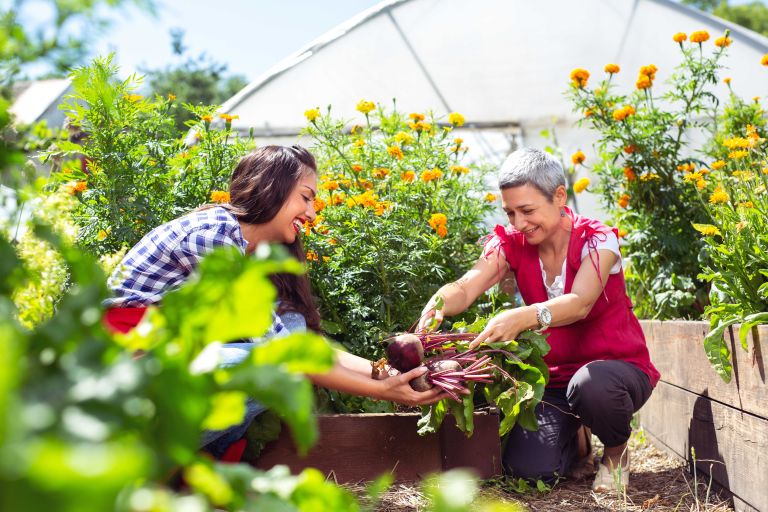About the project
The Hunter Brain Injury Service (HBIS) supports the Hunter New England Local Health District’s plan to be carbon and waste neutral by 2030 by using the principles of a circular economy to tackle food waste.
Our goal is to prevent and reduce food waste by:
- Making changes to ordering systems and meal planning processes
- Redistributing surplus edible food to people in need
- Reusing inedible food waste to regenerate soil that supports local food production.
HBIS has successfully implemented a closed-loop, patient-led solution to stop food waste from reaching landfill. This model has the potential to be scaled and replicated at other community health services across the District.
Project details
The Hunter Brain Injury Service (HBIS) is one of 15 specialised Brain Injury Rehabilitation Services in NSW. It offers both transitional and community-based rehabilitation to adults aged 16-65.
This standalone service focuses on community reintegration and social participation. Patients participate in daily activities such as meal planning, grocery shopping, and meal preparation.
In 2019, HBIS created a therapy garden and bush tucker yarning circle to:
- Embed sustainable practices in brain injury rehabilitation
- Create a culturally safe space for patients and their families, recognising the health benefits of caring for Country
- Increase physical activity, cognitive stimulation, and social interaction
- Improve nutrition literacy and dietary habits
- Offer pre-vocational skill development
- Improve engagement in therapy programs.
The therapy garden and yarning circle were co-designed by the HBIS rehab team, patients, Royal Botanical Gardens Community Greening Program, Newcastle Men’s Shed, and Therapeutic Horticulture Australia.
Since then, patients in the transitional living unit join a weekly garden group led by the rehab team. They choose tasks like seed selection, planting, pruning, soil and pest management, and weeding.
Patients harvest fresh produce from the garden, which guides meal planning. They compost kitchen waste, which is then used to enrich the garden beds.
Project outcomes
In 2022, HBIS worked with Go Circular to measure our program’s success.
Key findings:
- Diverted 120kg of food waste from landfill each year to composting and worm farming.
- Reduced monthly food spending by 49%.
Patient outcomes showed:
- Better understanding of nutrition and food systems.
- Improved meal preparation skills and higher intake of nutritious, unprocessed foods.
- Increased physical activity with opportunities to practice upper limb, mobility, and balance tasks in a real-world environment.
- Enhanced social connections with peers and improved mood.
- More opportunities to practice cognitive and social communication skills in real-world settings.
Overall, 87.5% of patients are eager to use their new knowledge of sustainable gardening and food preparation when they return home.
